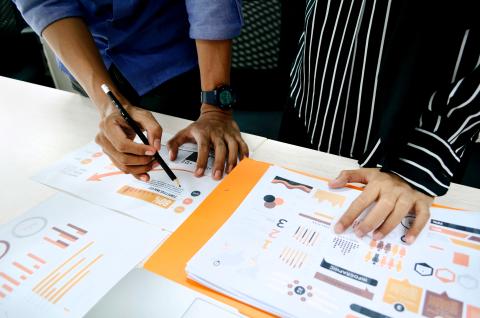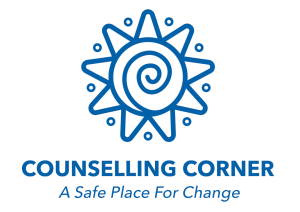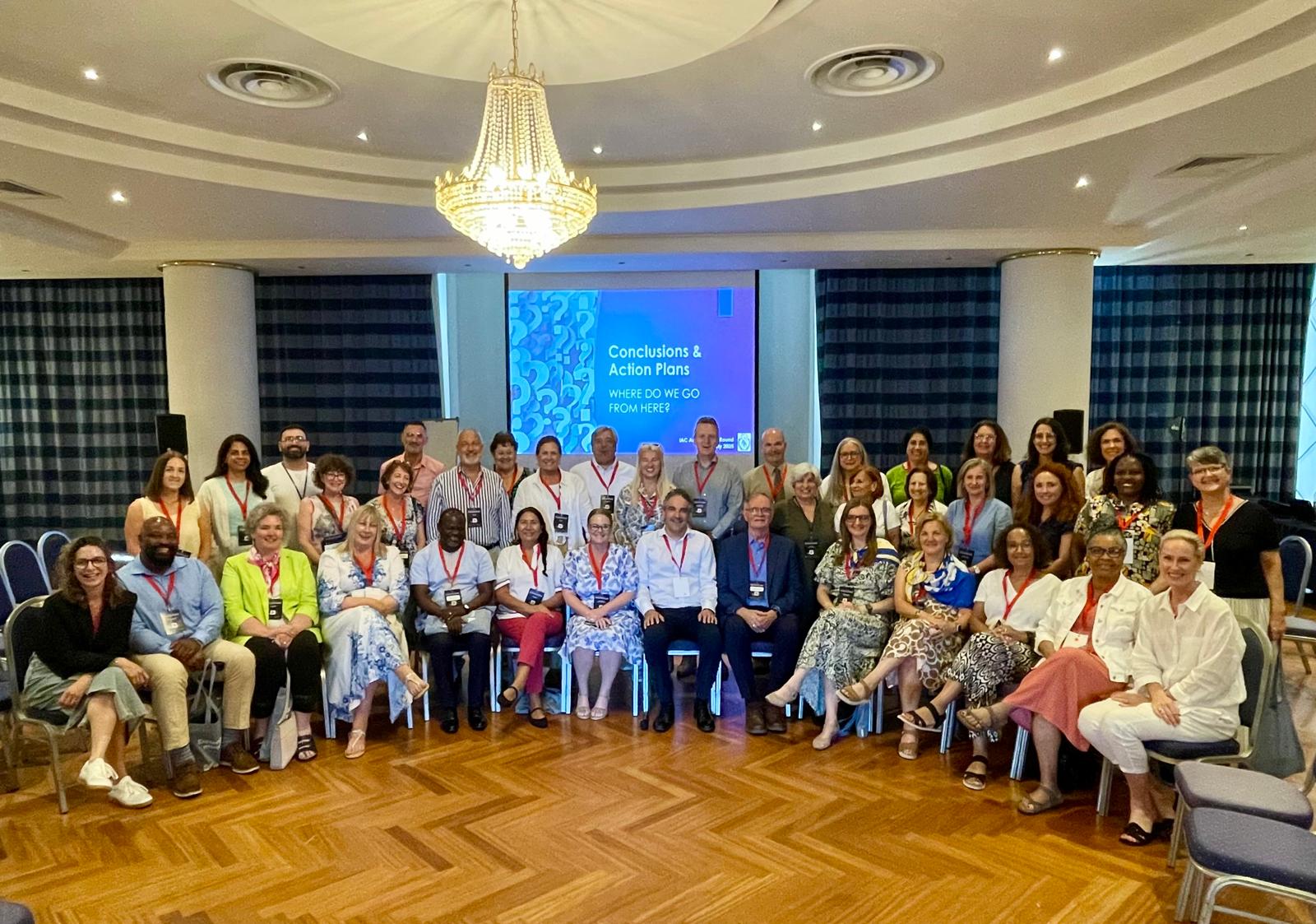IAC Global Policy, Standards & Advocacy
As outlined in our mission to advance the counselling profession globally, IAC leads international policy, standards, and advocacy to shape the future of counselling worldwide.
Shaping the Future of Counselling Worldwide
The International Association for Counselling (IAC) is the world body for the counselling profession and represents the profession at international, regional, and governmental levels. With United Nations consultative status and partnerships across global health and educational systems, IAC leads the advancement of counselling by influencing policy, setting international standards, and supporting the professionalisation of counselling in every region of the world.
IAC as the Global Voice of the Profession
Counselling is essential to global mental health, social stability, education, and human rights. Yet in many countries, it is not fully recognised or regulated. IAC gives the profession a unified international voice to ensure counselling is understood, supported, and integrated into national and global policy frameworks.
We work closely with:
-
United Nations agencies
-
Professional counselling associations and regulatory councils
-
Regional intergovernmental bodies
-
National governments and ministries
-
Health and education authorities
Our role is to influence policy, guide development, and ensure counselling is recognised as a vital profession in every country.
Policy Leadership Through Global Frameworks
IAC provides the international infrastructure that supports the growth and recognition of counselling across all regions. This includes:
Global Standards & Ethical Frameworks
-
Developed through international consultation and expert leadership
-
Adopted voluntarily by associations, training institutions, and governments
-
Serve as the international benchmark for professional excellence
Professionalisation Pathways
-
IAC supports countries in moving from emerging practice to legal recognition and regulation
-
Provides guidance, and consultation to governments and associations seeking to establish national frameworks
UN Advocacy & Global Mental Health Policy
-
IAC contributes to policy development across United Nations bodies, advocating for counselling in mental health, humanitarian response, education, gender equality, indigenous rights, and social justice
-
This ensures counselling is embedded in global strategies and national implementation plans
Evidence-Based Global Influence
World Mapping of the Counselling Profession
IAC leads the first and only global study documenting the legal status, qualifications, regulatory systems, and professional practices of counselling in all 196 countries. This authoritative data informs:
-
Government policy development
-
Professional recognition campaigns
-
International funding and programme design
-
Standard-setting and regulation efforts
Regional Policy Action & Consultation
Through its regional structure (IAC Africa, Europe, Asia-Pacific, North America, Oceania, Latin America & the Caribbean, Middle East & Central Asia), IAC advances global policy with regional sensitivity.
Regional work includes:
-
Advocacy for legal recognition and regulation
-
Collaboration with regional intergovernmental agencies
-
Development of region-wide standards and professional frameworks
-
Support for national associations and professional organisations
-
Region-specific education, research, and training initiatives
This ensures international cohesion with national autonomy and cultural relevance.
Global Partnerships & Collaboration
For over 50 years, IAC has worked with:
-
National counselling associations
-
Universities and training institutions
-
Ministries of health and education
-
International NGOs and professional federations
-
UN agencies (including WHO, UNESCO, ILO, UNICEF, UNHCR, ECOSOC and others)
These partnerships ensure that global standards are informed by diverse perspectives, grounded in evidence, and aligned with international policy priorities.
Policy in Action: How Members Participate
IAC provides mechanisms for members and associations to contribute directly to global policy development through:
-
IAC Round Tables (policy, ethics, education, research, indigenous practice, peace and social justice)
-
Consultations and working groups shaping standards and professional frameworks
-
Policy submissions to the United Nations and governments
-
Regional advocacy initiatives coordinated through IAC’s branches
While adoption of IAC frameworks is voluntary, they are widely recognised internationally and often referenced or used by governments when drafting regulation or legislation.
The Impact
-
Counselling recognised in national legislation and workforce plans
-
Stronger national associations through alignment with global standards
-
Governments using IAC data and frameworks to establish regulatory systems
-
Increased public trust and visibility of counselling
-
International inclusion of counselling in mental health policy and funding
IAC: Leading Global Progress, Together
IAC does not impose regulation. Instead, it builds international consensus, professional unity, and global momentum — guiding the counselling profession toward greater recognition, stronger policy integration, and improved services for individuals and communities worldwide.
By being part of IAC, your association, institution, or organisation contributes to shaping the future of counselling globally — while benefiting from the international credibility, advocacy strength, and collaborative leadership of the world body for the profession.

Useful Resources and Reference Documents
-
-
International Association for Counselling (IAC) – Universal Declaration of Ethical Principles for Professional Counsellors
https://www.iac-irtac.org/sites/default/files/IAC%20UDEPPC.pdf -
The Malta Declaration on Climate Responsive Counselling – developed by IAC in collaboration with the British Association for Counselling and Psychotherapy (BACP) and the Canadian Counselling and Psychotherapy Association (CCPA) LINK HERE
-
SCoPEd Framework – A shared framework for the scope of practice and education for counselling and psychotherapy with adults (January 2022)
https://www.pcpb.org.uk/resources/ - Australian Government (2025): National Standards for Counsellors and Psychotherapists LINK HERE
-
World Health Organization (WHO) / UNICEF – Foundational Helping Skills Training Manual: A Competency-based Approach for Training Helpers to Support Adults
https://www.who.int/publications/i/item/9789240105935 -
WHO / UNICEF – Review article of the “EQUIP” foundational helping-skills training package
https://www.cambridge.org/core/journals/global-mental-health/article/mixed-methods-evaluation-of-a-world-health-organization-competencybased-training-package-for-foundational-helping-skills-among-preservice-and-inservice-health-workers-in-nepal-peru-and-uganda/4F134DE83EB9C383197C499E889055A0 -
Psychotherapy and Counselling Federation of Australia (PACFA) – Clinical Competencies for a Registered Clinical Psychotherapist (2025) Link HERE
-
Irish Association for Counselling & Psychotherapy (IACP) – Code of Ethics & Practice for Counsellors / Psychotherapists
https://iacp.ie/files/UserFiles/News-Links/IACP-Code-of-Ethics-and-Practice-Current.pdf -
Canadian Counselling and Psychotherapy Association (CCPA) – Standards of Practice (6th Edition)
https://www.ccpa-accp.ca/wp-content/uploads/2021/10/CCPA-Standards-of-Practice-ENG-Sept-29-Web-file.pdf -
Government of Ireland (2025) – Standards of Proficiency for Counsellors LINK and Standards of Proficiency for Psychotherapists Link
-
Development of the WHO-UNICEF EQUIP initiative – Competency-based training and supervision for mental-health / psychosocial support
https://doi.org/10.1016/S2215-0366(24)00183-4 - Principles for Relational Safeguards in AI Mental Health Tools. (NCPS, 2025) -- Link Here
-




